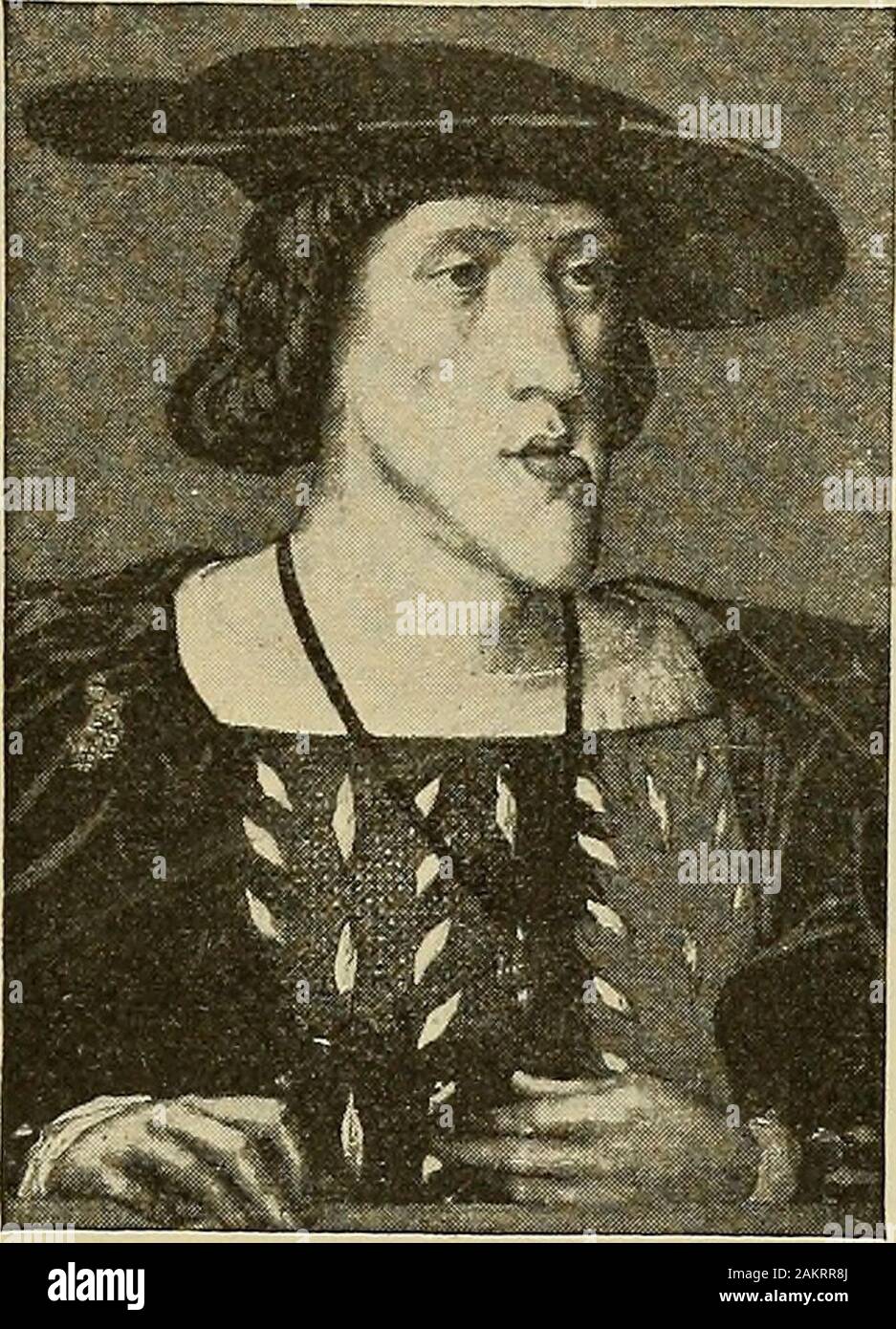A brief history of the nations and of their progress in civilization . ntries, thecrowns of Castile and Aragon,of Navarre, of Kaples andSicily, together with the ter-ritories of Spain in the NewWorld; and now he was atthe head of the Holy Eoman Empire. The concentration of so much power in a single handcould not but provoke alarm in all other potentates. The greatrival of Charles was Francis I., and the main prize in thecontest was dominion in Italy. Charles was a sagaciousprince, from his education strongly attached to the RomanCatholic system, and, in virtue of the imperial office, the pro-t

Image details
Contributor:
The Reading Room / Alamy Stock PhotoImage ID:
2AKRR8JFile size:
7.1 MB (519.2 KB Compressed download)Releases:
Model - no | Property - noDo I need a release?Dimensions:
1342 x 1861 px | 22.7 x 31.5 cm | 8.9 x 12.4 inches | 150dpiMore information:
This image is a public domain image, which means either that copyright has expired in the image or the copyright holder has waived their copyright. Alamy charges you a fee for access to the high resolution copy of the image.
This image could have imperfections as it’s either historical or reportage.
A brief history of the nations and of their progress in civilization . ntries, thecrowns of Castile and Aragon, of Navarre, of Kaples andSicily, together with the ter-ritories of Spain in the NewWorld; and now he was atthe head of the Holy Eoman Empire. The concentration of so much power in a single handcould not but provoke alarm in all other potentates. The greatrival of Charles was Francis I., and the main prize in thecontest was dominion in Italy. Charles was a sagaciousprince, from his education strongly attached to the RomanCatholic system, and, in virtue of the imperial office, the pro-tector of the Church. Yet with him political considerations, during most of his life, were uppermost. He overestimatedthe power of political combinations. Charles V. first cameinto Germany in 1521. At the Diet of Worms, Luther ap-peared before the Emperor, but refused to retract his opin-ions, and declined to submit to the verdicts of pope or council.After leaving Worms, a sentence of outlawry was passed againsthim. Charles at that moment was bent on the reconquest of. Ohakles v. 378 THE EEFOEMATION IN GERMANY Milan, which the French had taken, and he counted on the aidof the Pope. Francis I. — Francis I. (1515-1547) aimed to complete thework begun by his predecessors, and to make the French mon-archy absolute. By a concordat with the Pope (1516), thechoice of bishops and abbots was given into the kings hand, while the Pope was to receive the annates, or the first yearsrevenue, of all such benefices. Francis established the practiceof selling judicial places and ofiices of every sort. He wasbent on maintaining the unity of France, and, as a condition, the Catholic system. But he was always ready to help theProtestants in Germany when he could thereby weaken Charles.For the same end, he was even ready to join hands with theTurk. It was inevitable that Charles and Francis should quarrel, for Charles claimed a portion of southern France, the duchyof Burgundy, which he did not allow t